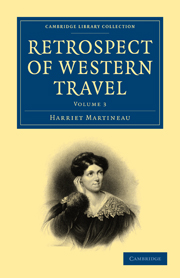Summary
“Another noble response to the battle-cry of the Prince of Peace, summoning his hosts to the conquest of suffering and the rescue of humanity.”
—Rationale of Religious Inquiry.“Vicaria linguæ manus.”
“Protected, say enlightened, by the ear.”
Wordsworth.Some weeping philosophers of the present day are fond of complaining of the mercenary spirit of the age, and insist that men are valued (and treated accordingly) not as men, but as producers of wealth; that the age is so mechanical, that individuals who cannot act as parts of a machine for creating material comforts and luxuries, are cast aside to be out of the way of the rest. What do such complainers make of the lot of the helpless in these days? How do they contrive to overlook or evade the fact that misery is recognized as a claim to protection and solace, not only in individual cases, which strike upon the sympathies of a single mind, but by wholesale,—unfortunates as a class being cared for on the ground of their misfortunes? Are deformed and deficient children now cast out into the wastes to perish? Is any one found in this age who is of Aristotle's opinion, that the deaf and dumb must remain wholly brutish? Does any one approve the clause of the code of Justinian by which deaf-mutes are deprived of their civil rights? Will any one now agree with Condillac that the deaf and dumb have no memory, and consequently are without reasoning power?
- Type
- Chapter
- Information
- Retrospect of Western Travel , pp. 92 - 139Publisher: Cambridge University PressPrint publication year: 2010First published in: 1838



